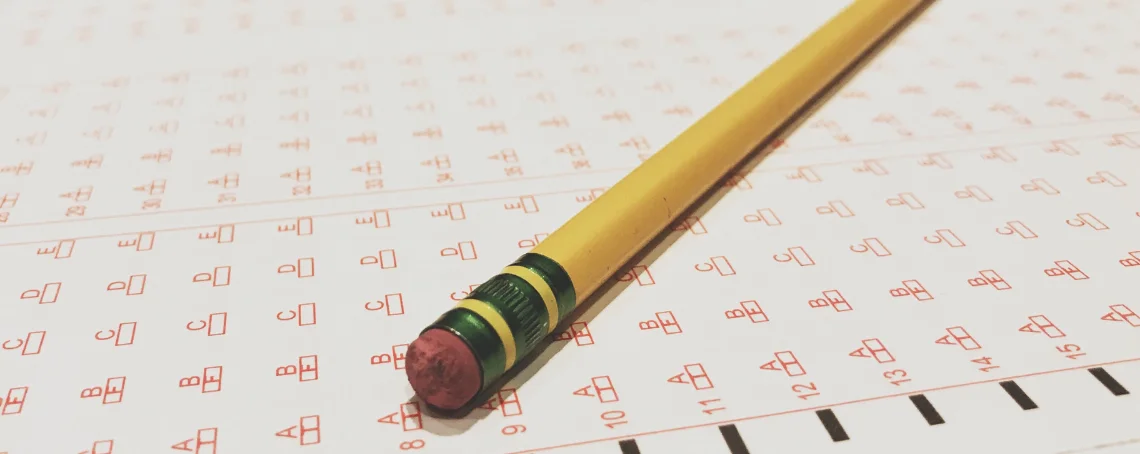“I already said good night to my mom, so I don’t want to explain why I’m still awake when she sees me go downstairs to get a sleeve of crackers. I’ll have to wait until she finishes this episode of Better Call Saul.” Being under the same roof as your parents comes with dilemmas and liberating freedoms—such as not having to buy those crackers you’re sneaking down to grab after bedtime. It’s not your fault that the only things that can help you sleep are copious amounts of TikTok and a handful of Club crackers!
At college, instead of waiting for Bob Odenkirk to go silent and for the lights in the living room to turn off, you will eat as many crackers as you’d like around the clock. Waste a sleeve of Saltines trying to complete their challenge. Slap peanut butter on a Ritz and try throwing it to stick on the walls. Share a bunch of Cheez-Its with the campus squirrels. The world is your oyster (and soup) crackers.
Upon graduating high school and enrolling in the college of your dreams, you will be gifted with a diploma and a surge of independence. Zinkerz has already helped you get accepted into your school (If you aren’t a part of the family yet, sign up for a free consultation!). Now, we are extending advice on what to expect when left to your own devices personally.
Academics
What is the point of college? To visit a new city to figure out which Uber drivers are the best conversationalists? To spend four years catching up on sleep lost during the four years of high school? No! The word “university” dates back to 1088, when Holy Roman Emperor Frederick I signed a charter for the law schools in Bologna, Italy, to combine educational forces. Frederick may not have been a wonderful swimmer (as he died drowning in waist-deep water), but he had a mustache that could rival Tycho Brahe’s. He stressed the importance of education by giving the new University of Bologna the motto “Alma Mater Studiorum” (Nourishing mother for studies).
This history lesson shows that education was the university’s first and most important pillar. You’re there to learn. But the manner and effort you use to pursue this purpose is at each student’s discretion. Choosing a course schedule that fits your lifestyle is going to be necessary. If you’re on a sports team, it’s probably wise to sign up for that 8 am anthropology course because practice starts at 3 pm. Need extra sleep after the weekend to perform your best? It may even be possible to schedule more T/R (Tuesday/Thursday) classes so you can have an extra day to relax. Understanding your body, mental health, commitments, and ability to endure back-to-back classes or needing a break in between is key to optimizing your schedule to learn at your best potential.
Assignments are another massive aspect of the collegiate academic experience. In the same week, especially near the middle and end of the semester, they may assign you a 20-page psychology paper that coincides with your Calculus II exam date. Now what? We can’t tell you what to do or force you to do your work. At Zinkerz, all we can say is that it’s going to be necessary for you to complete these assignments to the best of your abilities. But, with your independence, you’re allowed to decide what is best. For you, it may make sense to rush back to your dorm and start working on an outline of the psychology paper. Or, it may be better for you to take a day or two to meditate on it and plan out a work schedule. Maybe even visit a professor’s office hours for extra advice on the assignment. We know that, for everyone, waiting until the last second will not be an effective strategy. It’s up to you to ensure your work is progressing and completed on time. Your professors will not come knocking to check up on your paper’s first draft.
Even WHAT you study is up to you. You may have told your parents, teachers, Zinkerz counselors, dog, imaginary friends, or even the cool rock you found at the beach that your dream was to become your own business owner and study entrepreneurship. But now, enrolled at a liberal arts school, you take a philosophy class and realize your destiny is to disprove Kant’s Categorical Imperative, so you decide to change majors. Awesome! That’s your responsibility and your ultimate choice. Just know that regarding academics, it will take introspection and foresight to understand yourself and your passions. The only “wrong” option would be to continue working towards something that doesn’t give you enjoyment.
Extracurriculars and Free Time
Unlike high school, where you’re in class from 7 am until 2 pm (or whatever your school’s schedule is), your college schedule will be littered with breaks and time to fill. This will be where your independence is truly tested. Your class on Europe during the Cold War finishes at 10:50 am, but your poetry class doesn’t start until 1 pm. What do you do during this time?
Simply relaxing and waiting for it to be time to walk over to your next class is an acceptable option. Some classes can be challenging, so relaxation may be required. You could also finish that reading they assigned you for poetry or look back over the history notes you took during class to ensure that the lesson sticks with you. Grab lunch, too, during this break. Around the middle of the day, your stomach will start barking. You don’t want to be in class worried that the kids around you can hear your malnutrition, do you? That will distract you and take away from the Burns or Angelou poem you’re learning about. You could even hit the gym or make a quick trip to the store to replenish your snack cubby.
In short, a productive break will be best for a student. Using the time between classes to help yourself in one of your classes, run an errand that will save you time in the future without risking being late or missing the next class, or take care of your body are all productive ways for a student to kill an hour-long break between classes. What is not an effective use of this time is to be doing things you shouldn’t be doing: indulging in adult beverages (during your junior and senior years as a 21+-year-old in the USA), taking a nap without setting the alarm, or trying to speed write the last five pages for the essay that is due for that next class. With your independence, it’s going to be easy to think, “I’m just going to do what I want to do.” However, independence does not imply the absence of responsibilities. It simply means that you are the one in charge of your responsibilities—the one you’ll rely on is yourself. So, do yourself a favor and make your life easier.
The weekends will also be a time when you can get a jump start on the next assignment or catch up on work to make the upcoming week easier. It isn’t easy to do this, especially with things like friends as roommates and football on Sundays. Your friends will want to go to the movies, explore new restaurants, and attend school athletics. You should go with them! It will be a great time! But, if you’ve got a test on Monday, it’s probably not a good idea to commit to going to the basketball game that tips off at 8 pm on Sunday. There will be more weekends, so using one of them or a couple of hours during one of them to make sure that you’re putting yourself in a better position is going to be more impactful for you than knowing that [insert restaurant here] has the best chicken wings in the city.
Your time is your most important asset in life and college. Ensure you’re using it to your advantage and not wasting your potential.
The Dorms
We recently published a blog on the critical essentials for students to bring to college. In that blog, we discussed the things students will want to make sure they pack for move-in day to ensure their college transition is as easy as possible. Here, we’ll talk about what happens after you’ve got these essentials squared away and set up in your room.
Picture this: you got a job at a local retail store for the summer after high school because you wanted to save up money for college. Now, you’re enrolled and have a couple of hundred dollars on your new debit card. Now what? Your parents aren’t there to police your purchases, so you go to the corner store or the nearby Walmart and blow all of it on Mountain Dew, a new bean bag chair your parents wouldn’t buy for you, and every Dorito or bag of Skinny Pop that are in the store. This seems fun and comfortable, and delicious. But what happens when the semester is over, and you need to get an Uber to the airport? The Uber is $40, but you only have $12 left because all of it was spent on sugar and a chair made of beans. You’ve got to make that embarrassing call home and explain why you ran out of money. And, you’ve got to think: what happens now for the second semester? Where does the money come from?
This example involves financials, but it also extends to everyday living. You won’t have maids or parents to vacuum and mop around the room—that’s your job now. Laundry isn’t done by a fairy who knows spells to wash, dry and fold clothes. Disagreements between roommates will need to be settled through conversation. If you want something done in the room, it’s going to be up to you to see that it gets done and done in the way you like. Touching back on the example above, you are an adult. So, thinking logically and understanding the consequences of a decision will be vital to assuming independence. Make sure you are clear about your intentions and are living in a way that doesn’t cause issues and catastrophes in the future.
In conclusion, as much fun as it may be to have Oreos and cotton candy for dinner, you’re an adult and on your own at school. You’ll have friends there and be able to call family, but day-to-day actions will be up to your final decision. Mistakes are going to happen. Who’s the best person you know? Your mom? Your religious figure? Taylor Swift? Whoever it is, they’ve made mistakes. It’s not the end of the world. But, it’s essential to use these mistakes as lessons in independence. This blog should stand as an advisory tale for how you can try to avoid making some mistakes at school. College will be an excellent time to learn about yourself, mature, and grow. It’s a privilege to be able to go, and the school has the power to kick you out. Have fun, but don’t give them a reason to do that!



